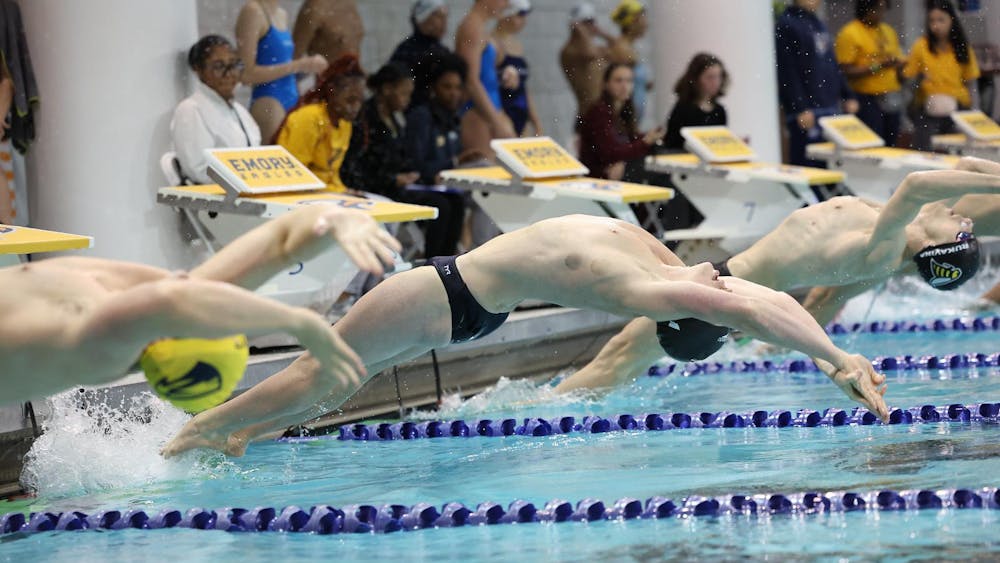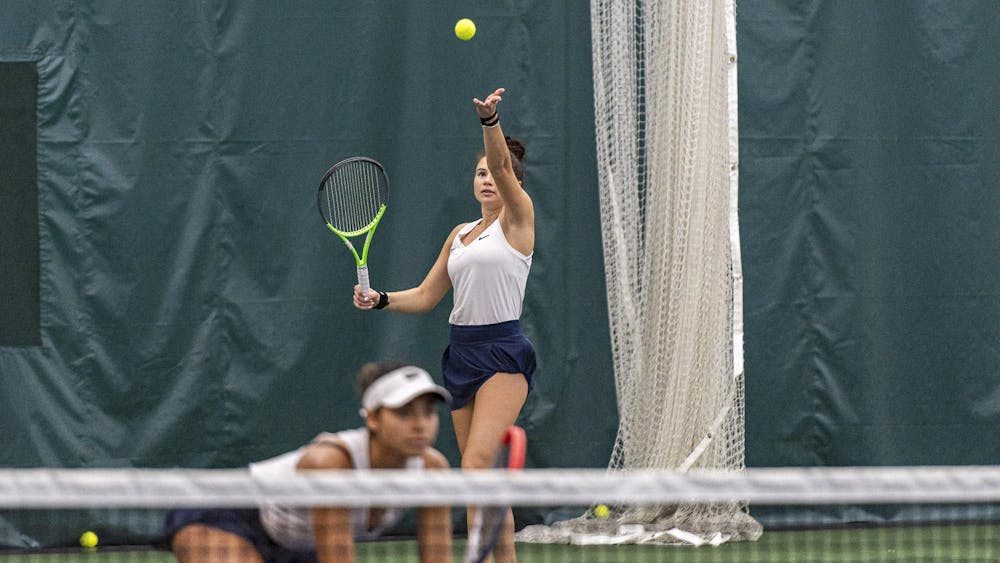Nationals fans, I think you should grab the tissues.
Baseball season has begun, and as a die-hard Philadelphia sports fan, it is my duty to remind you that after years of your baseball team being given high expectations and gloriously failing to meet them, the team’s star player decided that his time in Washington, D.C. had come to a close, and so he left for a greener pasture.
That pasture? Philadelphia. That star? None other than the most profitable player in all of Major League Baseball and the 2015 National League MVP, Bryce Harper.
After over 100 days as a free agent, the 26-year-old Harper signed a 13-year, $330 million contract with the Philadelphia Phillies on March 2. Many people, myself included, worry about the sheer magnitude of his contract, which was the largest in North American sports history for about two weeks, until Los Angeles Angels center fielder Mike Trout signed a 12-year, $430 million extension.
Could the size of the contract affect Harper’s play for the worse? We’ve seen it with other athletes after they cash out, namely Albert Pujols of the Angels and Alex Rodriguez of the Yankees. If he failed to play up to his price, Harper would essentially become a walking bag of cash that provides no use to the ball club.
Others worried that Harper wouldn’t be able to handle the pressure of playing in Philadelphia.
As a native of the Philadelphia area, there was definitely some thought of Harper not being equipped to handle the intensity of Philly fans. Visiting athletes see playing in Philadelphia like playing in a foreign country. Just ask New York Giants quarterback Eli Manning.
“Philly, it takes a little while to get used to it,” Manning said in an interview with 247Sports. “It takes a little while to get used to in Philly because you're not used to seeing a 9-year-old cursing at you and talking about my mom and stuff.”
Sometimes even our own players grow to dislike Philly, but the blame isn’t on the fans. We’ve run athletes out of the city before, like Jonathan Papelbon and Byron Maxwell. If a player doesn’t give 100 percent every day, like the aforementioned Papelbon and Maxwell, they will never earn the respect of Philly fans. That’s just the way it is. Outsiders think we’re extreme. They’ve even likened us to gang members, but in reality, we just want our teams to be the best that they can be. If that means booing our own players because they’re not trying hard enough, then so be it.
Facing an immense challenge, Harper did earn that respect in his introductory press conference, where he embraced the city of Philadelphia more than any other athlete I have ever seen. He promised to help bring the Phillies their first World Series since 2008 and talked about his decision to wear No. 3 on his jersey instead of No. 34, which he wore during his time with the Nationals. The gesture is a nod to the late Roy Halladay, who wore 34 while he pitched for the Phillies from 2010-13. Halladay passed away in a plane crash in 2017, a tragedy that was felt throughout Philadelphia.
Despite everything he said, Harper still had to prove that he was worth his contract after batting a disappointing .249 last season.
And so far, he has.
After going hitless in the first game of the season against the Atlanta Braves, Harper launched a 465-foot home run into the second deck in Citizens Bank Park in the next game against Atlanta. He followed that home run up with two more in the next two games, one more against Atlanta and one against the Nationals in his first game in D.C. after joining the Phillies.
Harper was met with a wave of boos from Nationals faithful in his first plate appearance, during which he struck out. Shortly after he was retired, Nationals fans showed their true colors and began to trickle out of the stadium every passing inning. It was clear that Harper occupied a tremendous amount of real estate in their heads, free of charge. They also showed that they are unwilling to see their team through the natural periods of success and failure that come with professional sports. They’d rather focus on booing an opposing player than cheering on their own team.
But none of this applies to Philly fans.
In the eighth inning, with Philly cheers drowning out the boos coming from Nationals fans, Harper hit a shot into the right-center field off of former teammate Jeremy Hellickson in the eighth inning, flipping his bat into the sky and silencing the few Nationals fans left in the stadium.
The Nationals fan base no doubt feels a lot of resentment toward their former No. 1 overall pick, but they should really start putting the blame on their front office. Before the 2018 season ended, the Nationals offered Harper a 10-year, $300 million contract, which he declined. Despite the $300 million price tag, the contract was legitimately not enough for a player of Harper’s status. It would have deferred a portion of the contract to be paid at a later time. Harper, who went into free agency hoping to secure the largest contract of all time, was not pleased.
To make matters worse, the Nationals offered Harper a second contract: 12 years, $250 million, with over half of the money being deferred until 2072. The real value of the contract, according to Harper’s agent Scott Boras, would have been just $107 million.
If the Nationals really wanted to keep Harper, who was always interested in returning, they wouldn’t have insulted him with that contract. It’s ridiculous that he wouldn’t have received the majority of the money until he’d be in a retirement home. But sometimes, you can’t fix stupid front office decisions.
The Nationals could be dominating the National League East right now with a stacked pitching rotation, solid positional players and, of course, Harper. But after years of disappointing postseason play, maybe they decided that they would rather let their best player walk, not make the playoffs and avoid the disappointment altogether.
Meanwhile, my Phillies are on a roll and their offense is a nightmare for opposing pitchers. Pretty soon, we’ll be so far in first place that the Nationals will look like a dot all the way down at the bottom of the division.
Get used to the cellar, Nats fans.





